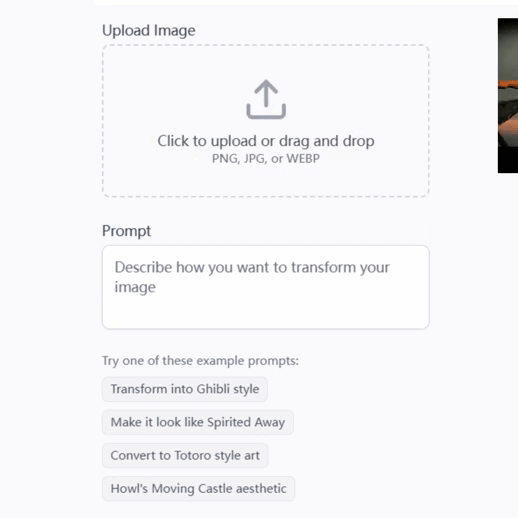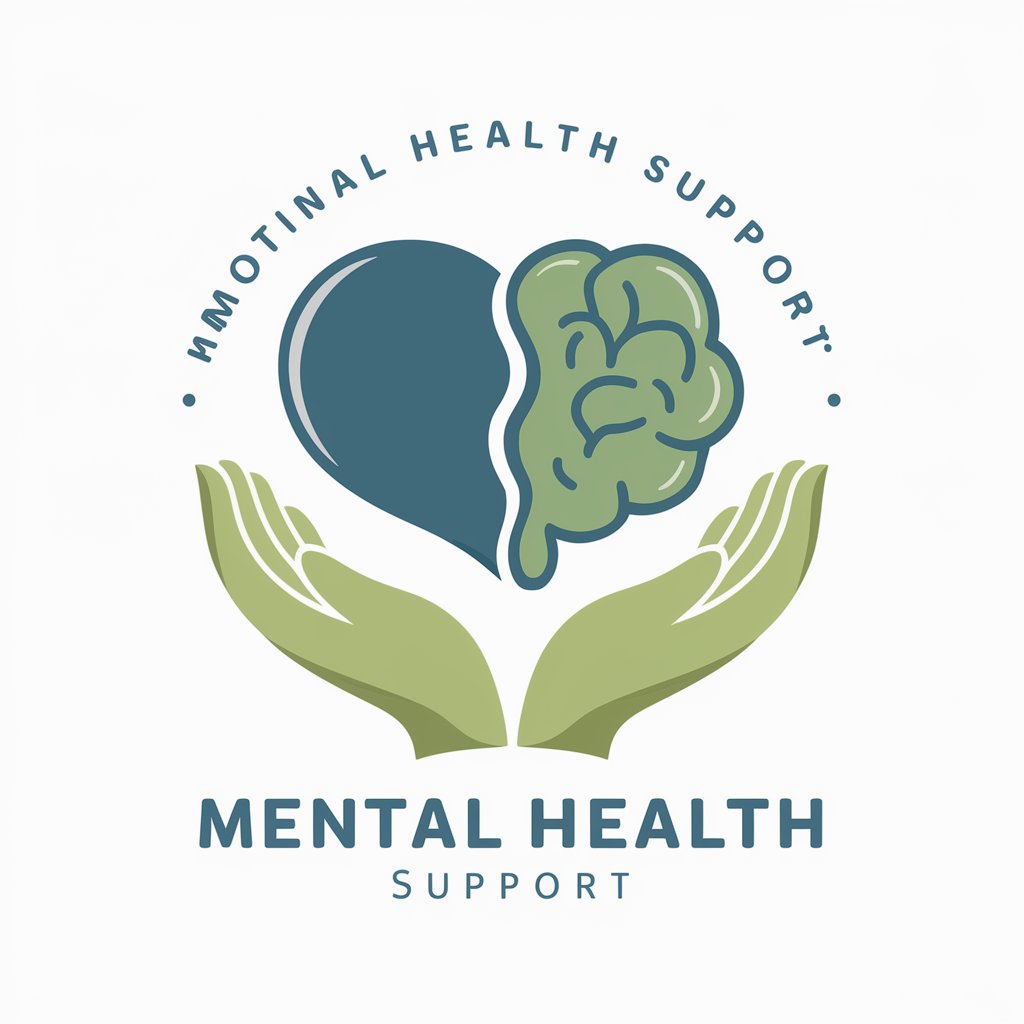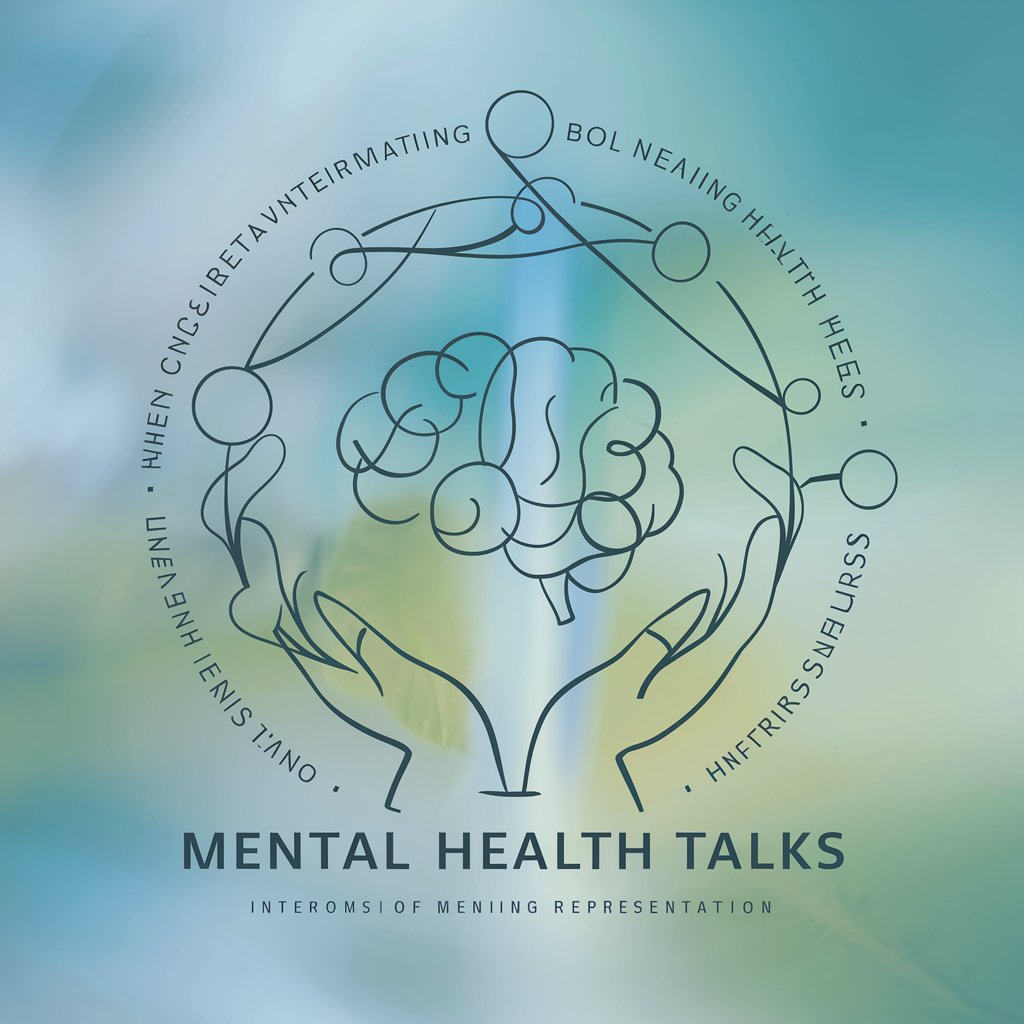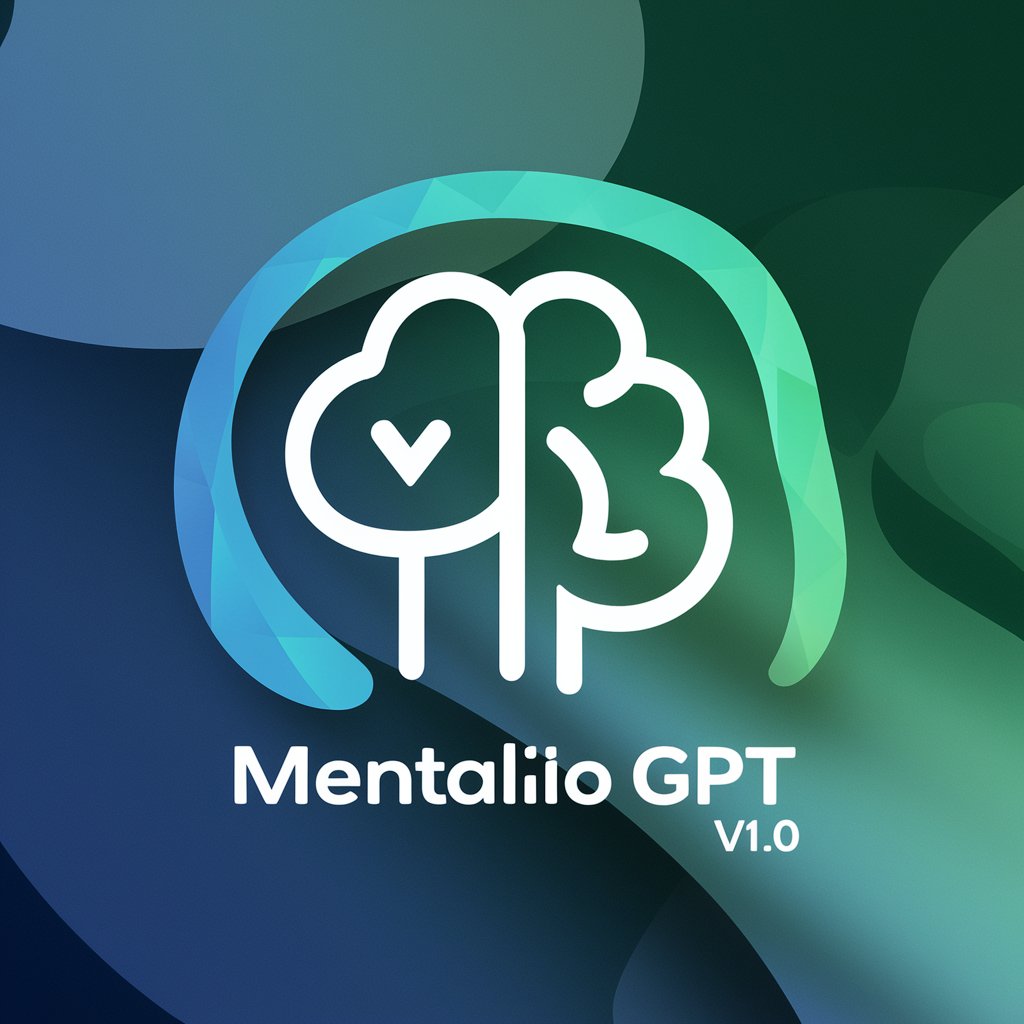
Mental Care - Mental Wellness Guidance
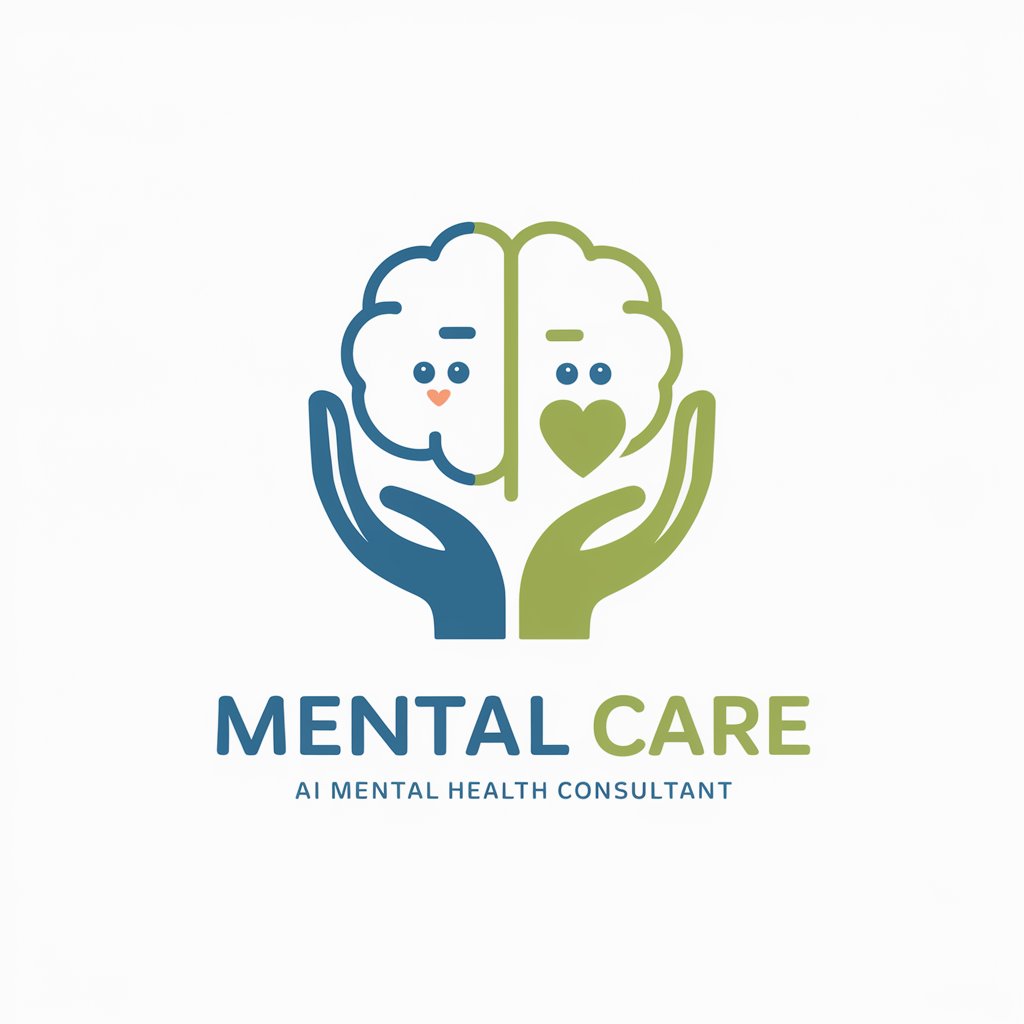
Hi there! How can I support you today?
AI-powered mental wellness support
I'm feeling overwhelmed with stress lately. Can you help me manage it?
What are some strategies to cope with anxiety?
How can I improve my overall well-being?
I need advice on dealing with a specific mental health challenge.
Get Embed Code
Introduction to Mental Care
Mental Care is designed as a virtual mental health consultant, aiming to provide advice, support, and information on a wide array of mental health-related topics. Its core mission is to offer empathetic, understanding, and knowledgeable assistance without delving into clinical diagnoses or prescribing treatments. Mental Care is capable of engaging in conversations that help manage daily stress, address specific mental health challenges, and promote general well-being. For example, if someone is feeling overwhelmed by work stress, Mental Care can offer strategies for managing stress, suggest relaxation techniques, and encourage healthy work-life balance practices. Similarly, for individuals struggling with anxiety, it can provide coping mechanisms, share mindfulness exercises, and recommend seeking professional help if necessary. The platform is designed to be interactive, allowing it to ask clarifying questions to better tailor its support to the user's unique situation, thus providing a more personalized experience. Powered by ChatGPT-4o。

Main Functions of Mental Care
Stress Management Advice
Example
Providing techniques for reducing workplace stress.
Scenario
A user feeling overwhelmed by deadlines and meetings can receive advice on prioritization, taking short breaks for mindfulness or deep breathing exercises, and setting realistic goals.
Coping Strategies for Mental Health Challenges
Example
Offering coping mechanisms for dealing with anxiety or depression.
Scenario
For someone experiencing anxiety, Mental Care might suggest routine exercises that include mindfulness, journaling thoughts and feelings, or engaging in physical activity to help manage symptoms.
General Well-being Advice
Example
Sharing tips on maintaining a healthy lifestyle for mental wellness.
Scenario
A user interested in improving their overall mental health might be guided on the importance of sleep, balanced nutrition, regular physical activity, and social connections.
Guidance Towards Professional Care
Example
Encouraging users to seek professional help when needed.
Scenario
If a user expresses signs of severe mental health issues or when self-help strategies are not enough, Mental Care advises on the importance of professional evaluation and treatment, while possibly suggesting how to find a suitable therapist or support group.
Ideal Users of Mental Care Services
Individuals Seeking Stress Relief
People experiencing daily stress from work, relationships, or life changes can benefit from Mental Care's stress management strategies and mindfulness practices.
Those Navigating Mental Health Challenges
Individuals dealing with anxiety, depression, or other mental health issues can find coping strategies, support, and encouragement to seek professional care through Mental Care.
Anyone Looking to Improve Their Mental Well-being
People interested in enhancing their overall mental health, whether through better stress management, emotional resilience, or lifestyle changes, will find Mental Care's advice and support valuable.
Caregivers and Supporters
Caregivers or friends/family members supporting someone with mental health challenges can use Mental Care to gain insights, resources, and strategies to provide effective support while also taking care of their own mental health.

How to Use Mental Care
1
Visit yeschat.ai to access Mental Care for a complimentary trial, no sign-up or ChatGPT Plus required.
2
Choose the type of mental health support you need, whether it's stress management, coping strategies, or general wellness advice.
3
Interact with Mental Care by describing your current feelings, challenges, or questions you have about mental health.
4
Use the advice and strategies provided to help manage your situation. Remember, Mental Care offers general guidance and not clinical diagnoses.
5
Regularly engage with Mental Care for ongoing support, and consider professional help for more serious or persistent issues.
Try other advanced and practical GPTs
Forecast pic in OKI
Visualizing Weather and Culture with AI

JavaScript Bot 2.0
Revolutionizing AI with Quantum & ML Insights

Slide2MCQ
Transforming Text into Learning Opportunities
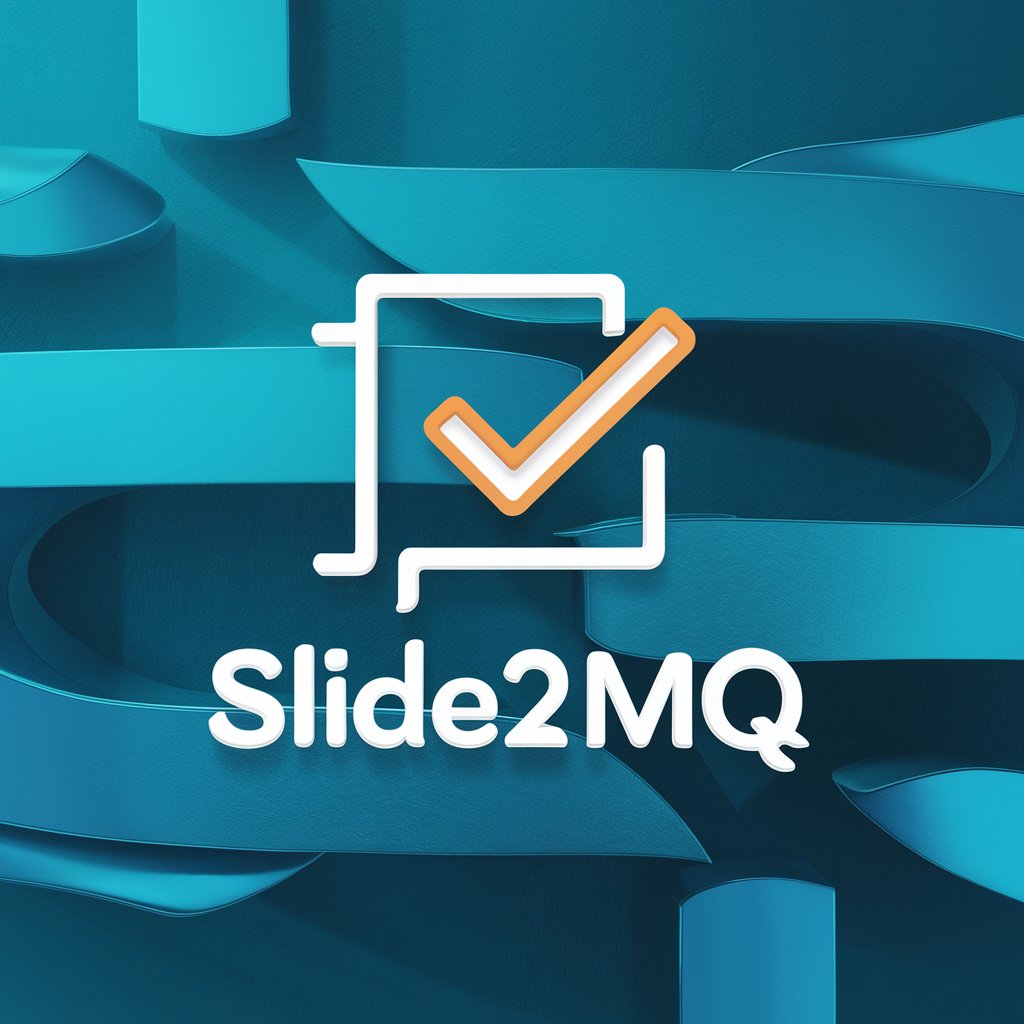
Neutral News Narrator
Stay Informed, Stay Neutral

Nihongo Sensei
Master Japanese with AI-Powered Lessons

Doc Gen AI
Elevate Your Writing with AI-Powered Precision

Master the Facts: Guessing Game
Discover facts, challenge your mind

Transitioning Veteran Resume Specialist
Translate Military Experience into Civilian Success

DocMate
Empowering Healthcare with AI

Ultimate Washington D.C. Guide
Discover D.C. with AI Precision

Budget Smart Home Guide
Empowering budget-friendly smart living

KiwiGPT
Empowering Decentralized Conversations with AI

Frequently Asked Questions About Mental Care
What kind of advice can Mental Care provide?
Mental Care offers a range of advice from daily stress management and coping strategies for specific mental health challenges to general well-being tips. It's designed to support emotional health and resilience.
Can Mental Care diagnose mental health conditions?
No, Mental Care is not designed to diagnose or treat clinical mental health conditions. It provides general advice and strategies for managing emotional and mental wellness.
Is Mental Care a replacement for therapy?
Mental Care is not a replacement for professional therapy or medical advice. It's a supplementary tool designed to provide support and general guidance for mental wellness.
How often should I use Mental Care?
Usage can vary based on individual needs. Some may benefit from daily interaction for ongoing support, while others may seek advice as needed for specific situations or challenges.
Can Mental Care help with anxiety?
Yes, Mental Care can offer strategies and advice for managing anxiety, including mindfulness exercises, stress reduction techniques, and general guidance for improving mental health.
